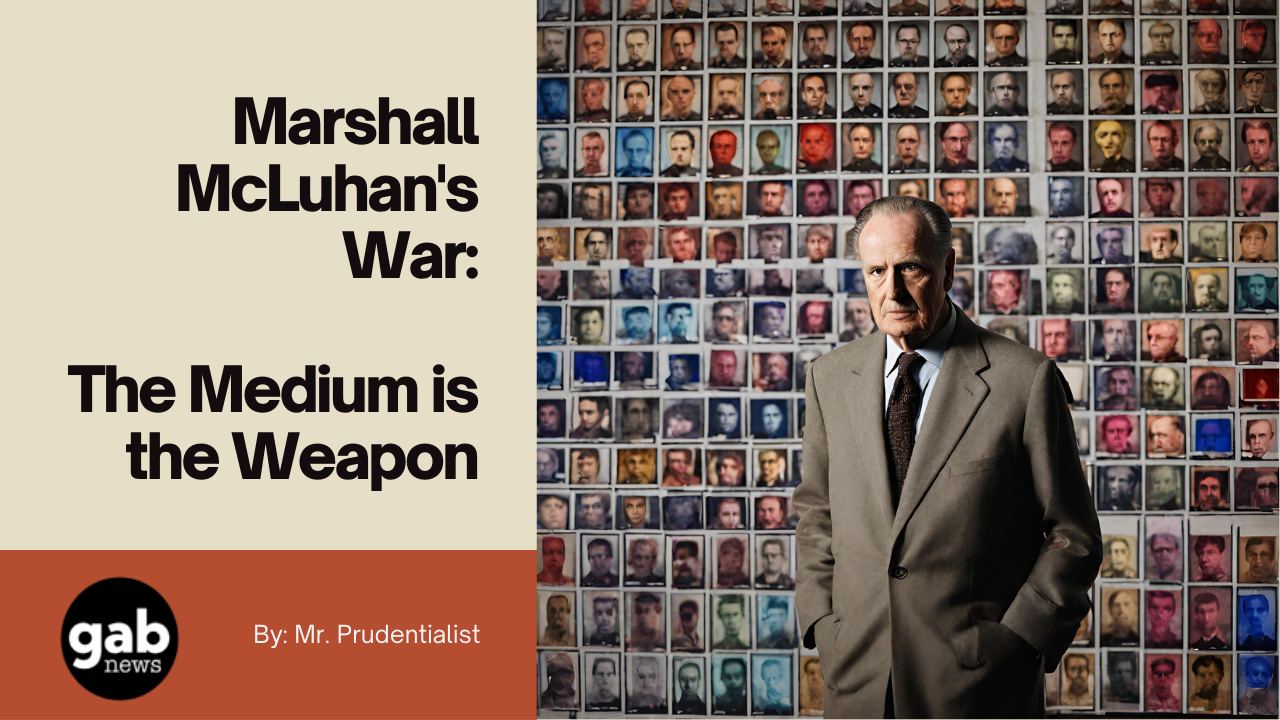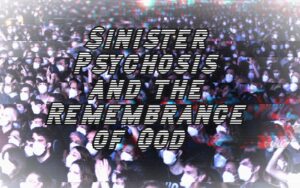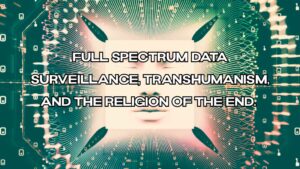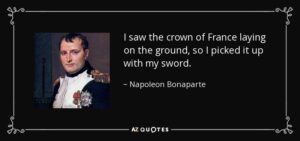The Medium is the Weapon
Since February 2022, Western minds have been exposed to a deluge of information, more data than any average individual can comprehend, let alone make sense of. Without taking serious time and processing efforts to draw a coherent narrative or to make sense of what’s going on, the War in Ukraine, the ongoing military presence in Syria, concerns over China and Taiwan and now the potentiality for escalation in Israel have left individuals scrambling for a lifeline that would help them make sense of what’s going on.
As the ongoing hostilities between the Israeli government and Hamas play out, once again did we see individuals, willingly or unwittingly share videos alleging be from the front, only for Twitter’s (now X) Community Notes function to kick in, and explain that the footage is actually from the Military Simulation Game Arma 3. Days later, footage had been tweeted about latest rocket attack and dead civilians only for Kiwi Farms to tell me that this had been footage from attacks back in 2014. People had their politics kept to the side, “just post news and verifiable footage, go somewhere else for shit-flinging.” I had paused in a moment in all the research and keeping up with what’s happening half-way around world and felt an odd sense of déjà vu.
I had already seen this before, almost a year ago with the opening days of the ongoing war in Ukraine. Footage from 2014, digitally altered pictures from previous engagements in the Donbas, immediate censorship and twitter accounts with Pro-Russian positions trying to get past the Western World’s attempt to ban RT or even hear what the Kremlin had to say on these matters. Although a lot had certainly changed since February of 2022 and October 2023, as stable diffusion and the broad category of “AI Generated Images” had been brought out. Without a careful eye or disclaimer, images could now be passed around that could easily fool the viewer. At the time of writing this, the headline and truth over whether or not Hamas has decapitated 40 Israeli babies is still being debated. While I certainly don’t have a doubt in my mind that Hamas militants are capable of doing such of thing, Skeptical Americans, Palestinian Sympathizers, Nationalists, and Anti-Zionists were demanding evidence. Certainly after “babies being ripped from incubators” of the Nayirah Testimony only 33 Years Ago (neat coincidence) do we see released imagery from Prime Minister Benjamin Netanyahu under intense scrutiny over its authenticity.
Matt Wallace had posited a worrisome observation that has done more damage to Community Notes as the “Bureau of Facts and Truth” but also has cast more doubts on how the war will be reported on.

Then things were made worse when someone posted this in response, which was later to be reported as an actual AI-Assisted Image.

I don’t think we’ll know the truth, and that’s obviously very intentional. The speed at which information moves is meant to keep us disoriented, constantly looking for the next happening before we can even figure out what just came across our timelines seconds earlier. Even if we have access to content, our ability to be “readily informed” is but a fantasy.
The internet may have accelerated the disintermediation, we no longer have media cable personalities like Tom Brokaw or Walter Cronkite to tell us what’s going on, and the last remnants of the TV Personality is currently doing hour long interviews on Twitter. We rely now on our parasocial relationships and parapolitics to give us the news to the particular ideological bent of your choosing.
Woke on the JQ? Go to Keith Woods and see how he’s covering it.
Want to turn the Gaza Strip into Glass? Check out Lindsay Graham.
Kate Lindsay explains this trend further in an article in The Verge:
The shift is particularly acute for Gen Z, who fell headfirst into the world of influencers and other online creators. This generation was raised among digital communities that were overlooked by traditional news outlets and forced to report on and police themselves through makeshift authorities like drama channels. If audiences wanted to hear news or have rumors debunked about their favorite creator, they would have to hear it from the creator themselves or a similar digital primary source.
Members of these communities became adept at a kind of citizen journalism that they now apply to more traditional news, prioritizing a first-person source or someone with relevant experience over the expertise of an unfamiliar journalist or stuffy publication. A recent study by Google’s Jigsaw unit, published alongside the University of Cambridge and Gemic, found this to be the case on TikTok as early as 2018 — the year it debuted in the US — with a participant investigating a rumor that Katy Perry had killed a nun.
The same instance has happened now with the war in Ukraine, as well as what’s going on with Hamas, Hezbollah, Palestinians and the Israelis. Whether it be Russians with Attitude to NAFO, there is a Stan or a Media Fandom that one goes to for reporting, takes, and sources. An outsourcing of judgement and information gathering, although not necessarily the credentialed experts that Walter Lippmann would have hoped for in Public Opinion. Nowadays even someone like myself will have an essay or a stream on a historical topic or event that will get more views than the average university. We still have yet to escape our pseudo-realities, but I don’t think we’ve managed to elevate our brain power to a point where technologically assisted omnipotence is accessible, although Elon Musk will certainly try.
However we do have a mile wide, puddle deep kind of omnipotence at the moment. At the touch of a button, I can access an extension of my mind’s curiosity with articles from University Libraries, JSTOR, Internet Archive, Twitter Search, etc., and get what I need, or let my feed be part of my daily routine, rewiring how my brain tells me to process information and how to best get it out. Any Twitter Group Chat conversation will inevitably turn into a writer’s workshop, where the command “Send Tweet” is an indication of a banger or a great take to be sent to the timeline.
McLuhan and our Global Consciousness
Pierre Teilhard de Chardin’s concept of the Omega Point, the finality of the evolutionary process wherein unity to the creator, The Christian Logos- Christ, as the end point for where we and all creation will one day become. Pulling briefly from the Wiki Page:
When Homo sapiens inhabited Earth through evolution, a noosphere, the cognitive layer of existence, was created. As evolution continues, the noosphere gains coherence. Teilhard explained that this noosphere can be moved toward or constructed to be the Omega Point or the final evolutionary stage with the help of science.[9] Teilhard refers to this process as “planetization.” Eventually, the noosphere gains total dominance over the biosphere and reaches a point of complete independence from tangential energy forming a metaphysical being, called the Omega Point.
Teilhard’s work influenced that of Dr. Marshall McLuhan, and it is here where I wish to take some time on Dr. McLuhan’s ideas, after all he is the man of the hour for this piece. As our globalizing consciousness, a planet wide noosphere that would be brought about by our instantaneous communications and information networks; the “Global Village.”
Our interconnectedness didn’t bring about some global homogeneity but rather an increased awareness of how different we actually are, in a way so visceral that only the older shock/exploitation films like Africa Addio could do. At any point in time one could see videos of dogs and frogs being roasted and eaten by various Southeast Asian Peoples, and then go to a video of African Americans washing their chickens with dish soap. In his responses to the various essays in the 1969 book, “McLuhan Hot and Cool: A Primer for the Understanding of McLuhan,” McLuhan states that the global village would make us more disagreeable, and that he had never considered any sort of uniformity and tranquility, in part because we are viscerally exposed to our differences, which would reinforce tribal attitudes.
On the internet we are far more tribal, we are in our own niche ecosystems, our tribes of people we can agree with or find ourselves to be in friendly territory. These can also Lippmann’s pseudo-realities, after all we can’t really know everything and we do trust our fellow kinsmen to tell us how it really is. This is part of what McLuhan described as the coming “Orientalism” of the West. Before diving into his work, I always thought the concept of the West becoming more “Oriental” was part of the times, as in the 1960s and 1970s were filled with new age spirituality, Hinduism, gurus, and eastern religions gaining traction so much to a point that St. Seraphim Rose wrote against it in his 1975 “Orthodoxy and the Religion of the Future.” To some extent, the cultural new age-ery certainly influenced him, but this 1967 interview between Dr. McLuhan and P. Mansaram fleshes out the concept further than what was written in The Gutenberg Galaxy.
In his discussion with P. Mansaram he says the following:
McLuhan – The desire to get involved … that is the reason for this costuming. They don’t think they are part of the middle-class world, our consumer world. So they want to get rid of all consumer-type patterns and those middle-class patterns which are visual; they want to get into this new mask. The new hippie attire is like the costumes of many parts of the world, is really like wearing a mask. It’s like putting on a mask, an image. And this mask wearing is an attempt to put on the audience. The new costume is a way of putting on a public, like putting on the outside society. It’s conventional in that sense. Now in our world there has been a big change in our society, so therefore the mask that has been worn by the TV generation is a corporate mask. The mask that was put on by the businessman in his business suit, this is the mask of the private individual. But the new mask, the new mask is corporate and it’s not private. And when you put on a corporate mask, you look very strange indeed in our middle-class society and so the oriental world has never had a middle-class, has never had a consumer culture, has never had markets in our sense, but only bazaars, bartering places. Never having had markets, never having had consumer goods, in our middle-class sense they have never felt the need to be individuals, or to look like private people, or look like corporate society. And so our own TV kids, now the teenagers, have rejected the middle-class pattern of consumer values and want to get involved within this tribal or group culture, which seems to them to make sense as depth, as a real commitment, a real involvement.
McLuhan – So, I think the problem about the East/West Happening is that it is very difficult to find a difference between the East and West. The West is so eager to appear Eastern in everything and is so keen on the inner trip. In the Electric Age, by the way, in the Electric Age the whole world is taking the inner trip; because of the circuit, the feedback, the electric technology is psychedelic. So the Western world is going Eastern in that sense of inner trip. Well, the old West used to be outer exploration, all was the outer world. Now it’s the inner world and the coach with the six insides, as Joyce called it. But the psychiatrist coach is an inner trip and so are many other forms of entertainment in our society and I rather feel the East/West happening draws attention to the fact that the East and West are becoming extraordinarily like each other in our global village.
While much of this feels par for the course of the age (hippies and psychedelics – Man I wish I read more McLuhan before feeling all smart about calling the internet Digital Ayahuasca,) we are indeed wearing masks our profile pictures and our own tribes offer a sense of fulfillment in group culture that we see as we workshop our tweets and cross-promote each other’s Substack columns.
Perhaps McLuhan would see that our desire to be “private people” is more than just privacy, after all on the internet no one knows if you’re a frog or a beagle forecasting doom like Cassandra – but we do put on our masks to tell others what’s going on like Oracles of Delphi. Not just for political purposes but also escapism to avoid judgement or to take off the shackles of the Western expectations of who we’re meant to be. From niche interests and bizarre sexual fetishes, I think Dr. McLuhan would be terrified to know that there are articles written about Furries who wish to maintain their Christian Faith despite being part of a strange subculture that’s far from anything traditional.
This isn’t a long digression from the subject of the ongoing conflicts in Israel and Ukraine, as McLuhan’s lens of analysis with respects to media and warfare are vital to help us understand how we ourselves are interacting and engaging with the media and headlines of a war far away. Most if not all of us are far from any real levers of influence or power, and we stake our positions either as personalities or writers in part because we’ve garnered a following or an income. After all Warhol said we may have all have one day our fifteen minutes of fame, but I’m positive it was adapted from McLuhan describing how television contestants can be famous for just one moment on a game show. We are the inheritors of this, we can become journalists, the ones who ratio or are ahead of the curve on current events, or have prescient takes that people can use over and over again – such as Covfefe Anon’s ‘the Woke are More Correct than the Mainstream.‘
This fits well with the Oriental world that McLuhan had predicted, as we’ve moved on from the typographic man to the memetic man, we are tribal in our subcultures, ecosystems, and camps.
Perhaps a modern spin on McLuhan’s tribalism can be exemplified on the online right between the Fuentes’ America First versus the Bronze Age Pervert style BAP’ists. We’re deep in our own respective camps, we have friends, mutuals, meme styles that we can instinctively identify as our own in a battlefield that has us constantly connected at all times. The masses are not as well read as they used to be, tele-visual communication models are preferred (Streaming, TikTok, Snapchat, etc.) Warfare becomes a mechanism for how to pit camps against one another, to lead on to false messiahs, and to pursue ruses rather than the truth or to spend more time simply arguing over the internet than actual organizing. I’ve yet to see a more powerful memetic weapon that captured the minds of both young and old than that of “trusting the plan” and QAnon in the aftermath of November 2020. It was a weapon, an infohazard, a dangerous memeplex, whatever you want to call it, it worked on the masses enough to have people gathering for the return of dead politicians, or that there were good guys in the Biden admin secretly running things. I recall early in forum and chan culture that pictures of your computer and your desk where you would post was “post your battle stations” and oh how true that rings today.
McLuhan’s global village has made us more aware of who we are in comparison to the other, but we’ve in turn found our hippie-dom in a discarnate life, a world far from the focus of the Incarnation in Christianity to a point where when someone gets banned on Twitter we speak of them as if they are dead. (Don’t get me started on “Weird Christian Twitter.) We’re not just contestants on television, but the television hosts, all competitors for eyes of readers who my have a sympathetic eye or ear, working on our performances as we engage in both competition and stochastic warfare. Yet at the same time our global awareness makes taking care of our backyards difficult, even the most reactionary people I know have the capability to have telescopic hatred or fixation on something so far off that they’re mirror universe version of Mrs. Jellyby.
And Back to the War
Global villagers means we are also global, but very tribal warriors. Verifiable truth has been hard to obtain in a low trust environment, even the tribes of various political and ethnic groups are relatively semipermeable (although race and ethnicity tend not to be as the war in Israel has reminded us.) Online subcultures are semipermeable because all it takes is one individual to keep bad actors in the loop or in the “camp” of various members. Even now as the media blitzes over the most recent attack on a Hospital, whether or not it was from a faulty Hamas rocket or it was a targeted Israeli strike does not matter to most as it is just more ammunition to use as they go to war with their racial, political, and ideological enemies. Truth has always been the first casualty in any conflict, but now you get to watch truth not only become a casualty, but its bones and shreds of truthy-sinew be molded for a particular narrative or organization.
Now in age of AGI, LLMs, Deepfakes and Stable Diffusion Images, who needs information when you can prompt exactly what you need?
Matt Chessen, who wrote THE MADCOM FUTURE: HOW ARTIFICIAL INTELLIGENCE WILL ENHANCE COMPUTATIONAL PROPAGANDA, REPROGRAM HUMAN CULTURE, AND THREATEN DEMOCRACY… AND WHAT CAN BE DONE ABOUT IT for the Atlantic Council for a September 2017 report. Regardless of the ideological positions of the Atlantic Council, it’s a six year old paper well worth reading.
Emerging artificial intelligence (AI) tools will provide propagandists radically enhanced capabilities to manipulate human minds. Human cognition is a complex system, and AI tools are very good at decoding complex systems. Interactions on social media, browsing the Internet, and even grocery shopping provide thousands of data points from which technologists can build psychological profiles on nearly every citizen. When provided rich databases of information about us, machines will know our personalities, wants, needs, annoyances, and fears better than we know them ourselves. Over the next few years, MADCOMs—the integration of AI systems into machine-driven communications tools for use in computational propaganda—will gain enhanced ability to influence people, tailoring persuasive, distracting, or intimidating messaging toward individuals based on their unique personalities and backgrounds, a form of highly personalized propaganda.
Within the report we see three scenarios of how nation states, non-state actors, and the human race as a whole deals with machine learning, the weaponization of these tools as we engage in full on information warfare.
From the Third Scenario;
In response to threats posed by MADCOMs, computational propaganda, weaponized narratives, and other rampant disinformation, over the next decade many nations impose stringent regulations on online communications and information. The global community creates a new Internet 2.0 that features much stronger security protocols, including required, verified, state-issued identities for access. Unattributed MADCOM activities are prohibited by law and attributed MADCOMs are heavily regulated. Internet 1.0 still exists, but is seen as an unsecure Wild West—full of malware, disinformation, and predation…….Political change slows as incumbents use their cognitive security powers to solidify their political positions. Political campaigns are prohibited from using many MADCOM tools for messaging, and any online communications from candidates, parties, or political action committees (PACs) are required to be clearly attributed to their source. Cognitive security, and cognitive-manipulation powers, are reserved for the state.
This is just on the domestic end, and I can see why Elon Musk is aiming for a 1 dollar a year charge to decrease the presence of bots on his platform, although that will certainly do away with most anonymity. As for warfare let’s turn to the first scenario, “SCENARIO 1—A WORLD GONE MADCOM: GLOBAL INFORMATION WARFARE.”
Nations weaponize narratives, using MADCOMs to exacerbate social discord, undermine faith in government, and eliminate the reliability of traditional journalism.28 Savvy dictators and authoritarian regimes use unattributed MADCOMs to wage information warfare, delivering personalized propaganda to individuals in foreign countries and to their own citizens. MADCOM-driven noise drowns out signals used in intelligence collection and social-media analytics. However, MADCOMs impersonating humans open new routes for espionage and theft. MADCOMs are used to create fake events, and to subtly manipulate real ones for advantage. Reality becomes pliable.
Think tankers see risk to regime stability, that MADCOMs could be used by both dissidents and foreign powers to foster hostility and weaken domestic civil cohesion (although I think they’re doing just fine without AI tools) and make current propaganda efforts look like child’s play. Imagine what a Pro-Russia, MAGA-Communist like Jackson Hinkle could do if he had well done, MADCOM assisted technologies to support Hamas outside of just ratio’ing Ben Shapiro on twitter. Perhaps something like Stuxnet 2.0 could be deployed, as a bot that could help be your auto-janny on Telegram only to privately shut down access to your page if you are sharing frontline footage from the latest siege of Bakhmut. If you thought the pro Ukraine, pro NATO NAFO Doggos were awful, I’m sure it will only get worse.

Throw in some AI assisted images for pre-digital photographs, everyone from Hotep Black Nationalists to Liberal Historians can help confirm their side of the story even if it isn’t fake. As Phillip K. Dick would write, We Can Remember It for You Wholesale.
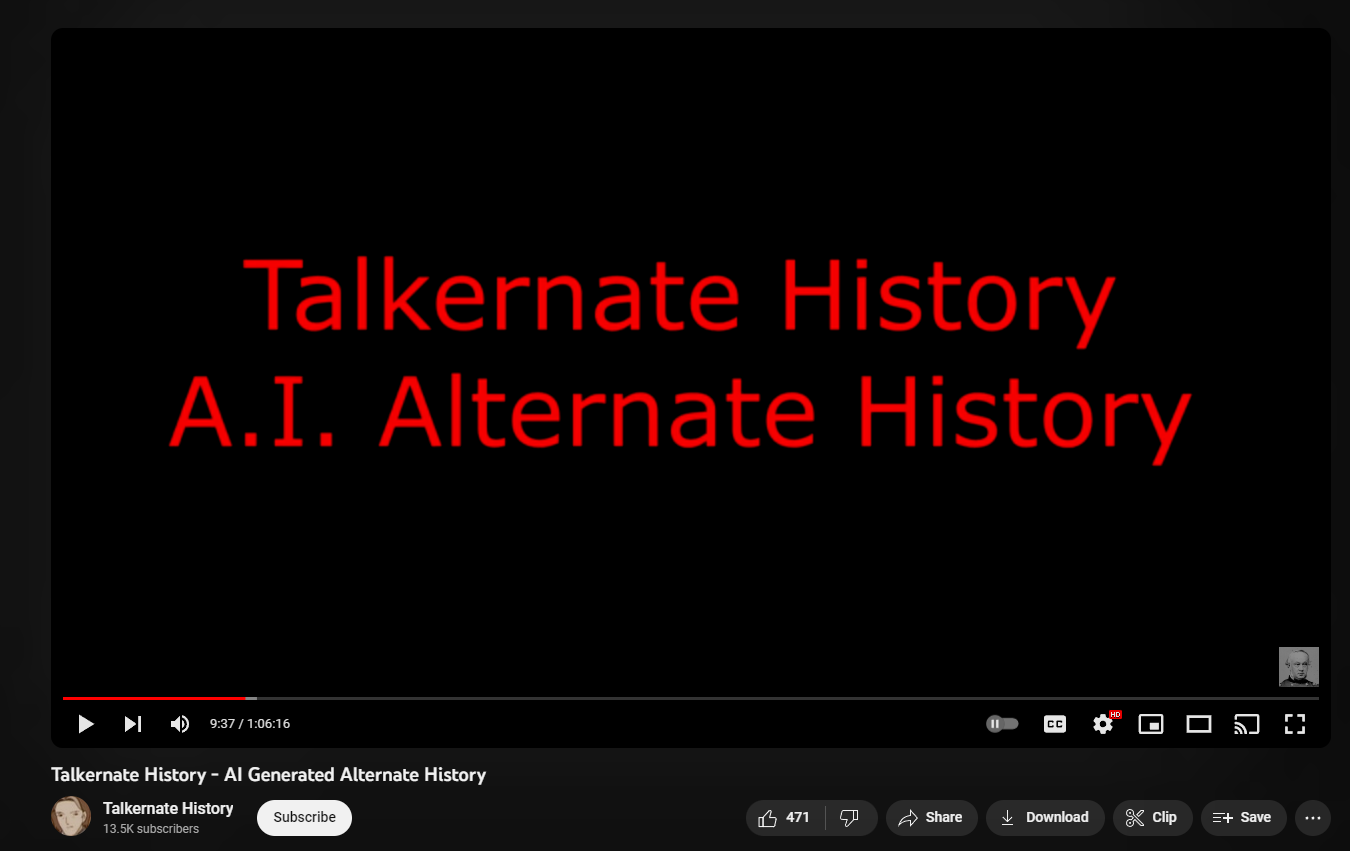
We are all fighters, historians, amateurs and professionals when it comes to an age where the truth may not matter online but it sure does when you lock your car doors when passing by a sketchy neighborhood. Progressives are duped to believe that somehow more programs and more social workers will stop their racial coalitions from burning down cities or beating up fellow progressive voters in the subways, while mainstream conservatives believe that the constitution still matters in any tangible way, and that there are still ways we can “all still get along.” The ongoing wars in Ukraine and Russia have illustrated that that the lack of belief in an institution can seriously weaken the credibility “Disinformation Experts” have on their own populace, even if democracy doesn’t matter regimes still have to worry about the fact the the majority of the country isn’t doing so well on home front and now they don’t believe you outside of self identified partisans.
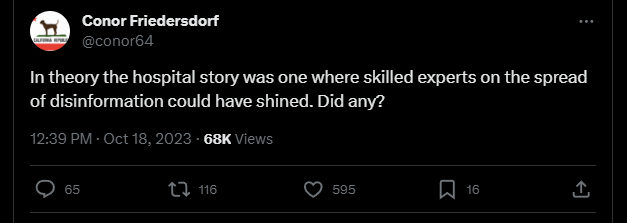
As these wars rage on and escalation risks seem all the more likely, information wars from all sides, from the Cyber Command to the Backwoods Shitposter will make understanding the war all the more impossible without dedicated forums or individuals making a living just trying to decipher what’s actually going on. The MADCOM paper I referenced earlier, before it even begins to discuss its scenarios opens with the following quote from Dr. Marshall McLuhan.
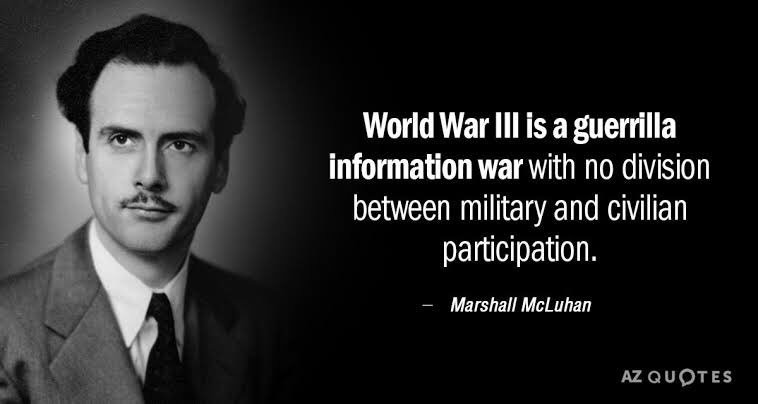
The Medium is the Weapon. We are all soldiers whether we like it or not, tweets, geotags, photos, internet sleuths and even meme pages will coordinate the future of warfare, the very war that McLuhan predicted.
This article has been republished from Substack with permission from the author.

The Prudentialist is a Writer, YouTuber, and Founding Member of the Old Glory Club. His work can be found at https://findmyfrens.net/theprudentialist/

